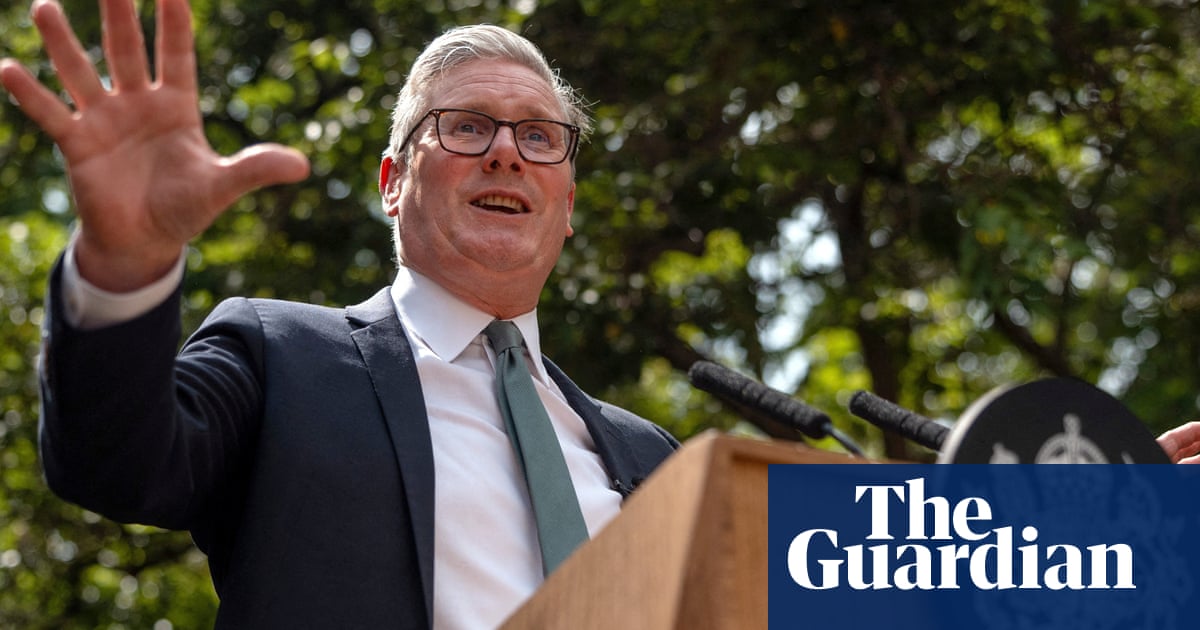Keir Starmer managed to avert a parliamentary defeat over his main welfare bill on Tuesday, but only by removing a central element. So where does the government’s latest climbdown leave the public finances?
Cuts to the personal independence payment (Pip) announced at Rachel Reeves’s spring statement in March were meant to save the Treasury £5bn a year.
Ministers’ changes to the bill last week to try to avoid a Commons defeat – reversing some cuts to universal credit and applying the stricter Pip eligibility rules only to new claimants – had already reduced that saving to about £2bn.
Afterstripping the Pip changes out of the bill completelyon Tuesday, the Resolution Foundation estimates there will be no savings in five years’ time – leaving a £5bn hole in the chancellor’s plans.
Reeves also faces a £1.25bn cost from her decision torestore the winter fuel allowanceto most pensioners – having stripped it away last year.
Between them, these U-turns will swallow most of the £10bn headroom the chancellor created for herself against her fiscal rulesat her spring statement.
We won’t know until the Office for Budget Responsibility (OBR) publishes its latest forecasts in the autumn, but it certainly looks more likely after the latest reversal.
There werealready fears in the Treasurythat the “summer stocktake” of forecasts the OBR is now undertaking, would result in a downgrade to growth expectations – setting Reeves on course to breakher fiscal rules.
In an evaluation of past forecasts, published on Tuesday, the OBR noted that it has tended to be too optimistic over the course of a five-year forecast – the period over which it assesses the government’s compliance with the rules.
There is a widely held view among City experts and thinktanks that the OBR could decide to revise down its growth forecasts – which could have a significantly bigger impact on the public finances than the welfare U-turns.
Reeves’s team caution that there are many factors at play – including the possibility of more upbeat economic news between now and the autumn.
An increase in the government’s borrowing costs would work in the other direction, however. The yield – effectively the interest rate – on government bonds rose sharply on Wednesday, amidspeculation over the chancellor’s future.
Reeves could rewrite her rules, or scrap them altogether; but she has made clear that she believes a looser approach would not be tolerated by the bond markets – which determine the interest rates the government must pay on its debt.
If she is sticking to the framework, in theory the chancellor could opt to cut spending in future years – the approach she took at the spring statement, and which led to the hasty announcement of the Pip cuts.
That looks unlikely, given that future budgets for departments were only set inlast month’s spending review, and much of the rest of public spending is on the benefits that have proven so politically difficult to touch.
Sign up toBusiness Today
Get set for the working day – we'll point you to all the business news and analysis you need every morning
after newsletter promotion
That leaves tax rises, which many independent analysts now believe look increasingly likely.
Asked on Wednesday morning whether he could rule out tax rises, the cabinet minister, Pat McFadden, told BBC Breakfast he was “not going to speculate” on the budget, but added: “We will keep to the tax promises that we made in our manifesto.”
The Treasury may also be reluctant to sign up to further spending measures, such as the £3.4bn cost of lifting the two-child limit on universal credit, which some Labour backbenchers have been pushing hard for.
Labour has ruled out increasing the main revenue raisers of income tax, VAT, and employee national insurance. Reeves may also be reluctant to pile more costs on businesses, after they bore the brunt of the£40bn in tax risesshe imposed at last year’s budget.
Given these constraints, many analysts believe a plausible option would be to extend the freeze on income tax and national insurances thresholds imposed by Jeremy Huntfor an additional two years– dragging more people into paying the higher rates.
The chancellor firmly rejected that plan at last October’s budget, however, and appeared to hint that it would breach the spirit of Labour’s manifesto.
“I have come to the conclusion that extending the threshold freeze would hurt working people. It would take more money out of their payslips,”she said in her budget speech.“I am keeping every single promise on tax that I made in our manifesto. So there will be no extension of the freeze in income tax and national insurance thresholds beyond the decisions of the previous government.”
Other possible revenue raisers include cutting tax relief on higher rate pension contributions – a policy regularly raised and rejected by previous chancellors.
Reeves is also likely to be encouraged to think more creatively about tax reform – though the more radical the proposal, the less likely it is that the OBR will accept the Treasury’s estimates of what might be raised.
The former chancellor and prime minister Gordon Brown has recommended a £3bn-a-year levy on online gambling companies, to fund the lifting of the two-child limit on benefits, for example, while leftwing Labour MPs are calling for a wealth tax.
